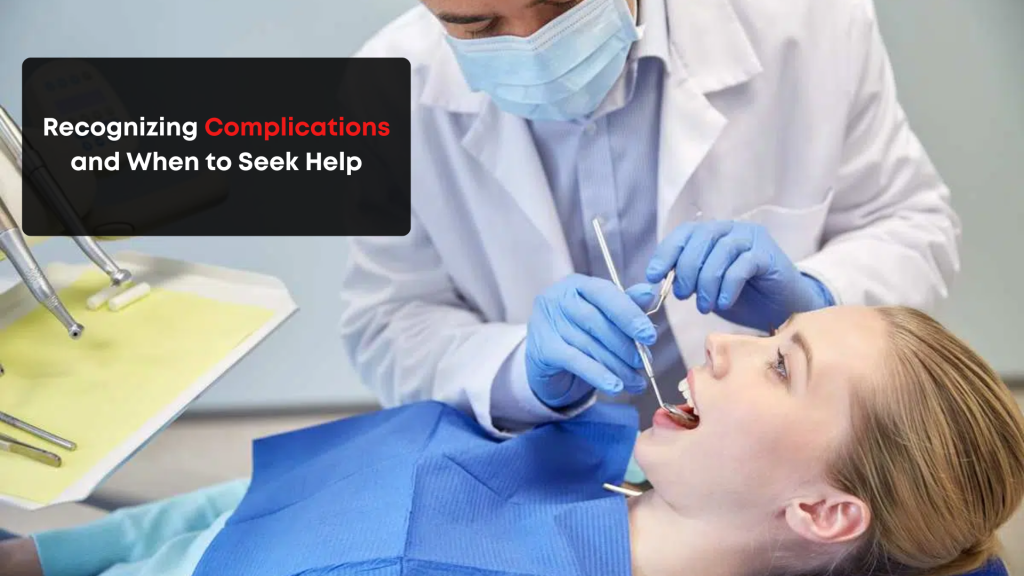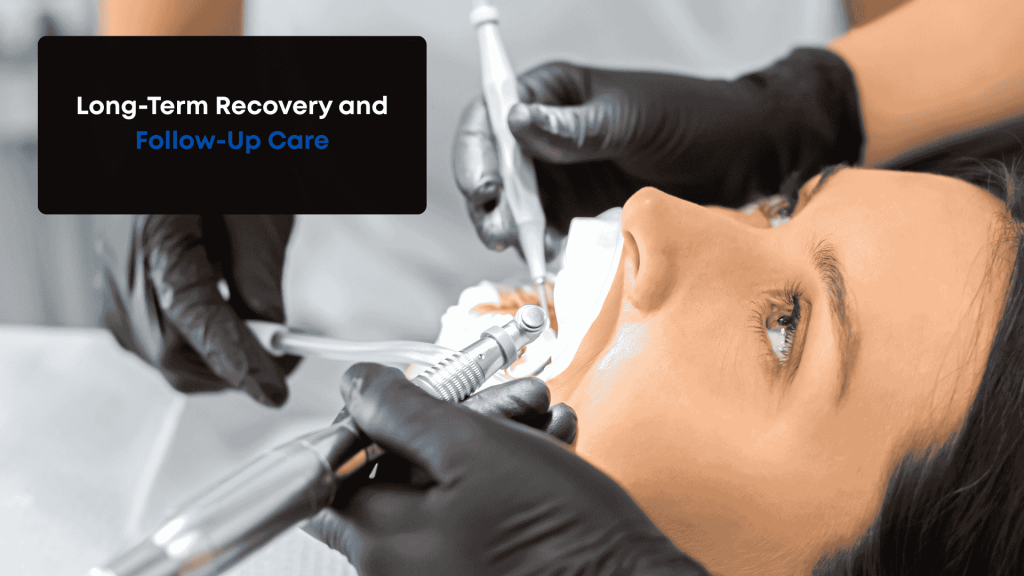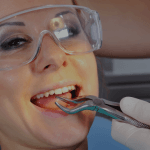Your wisdom tooth extraction is complete, and you’re handed a packet of postoperative instructions while still feeling the lingering effects of anesthesia. Wisdom Tooth Removal is an important step in maintaining your dental health. The next 72 hours will determine whether your recovery is smooth sailing or a bumpy journey filled with complications. What you do—and more importantly, what you avoid—during this critical healing period can mean the difference between minimal discomfort and painful setbacks like dry socket or infection.
Understanding Your Recovery Timeline
Wisdom teeth removal recovery varies significantly depending on the complexity of your procedure, whether you had impacted wisdom teeth, and your individual healing response. Oral surgeons and experienced dentists typically provide detailed postoperative instructions customized to your specific surgical site needs.
The initial 24-48 hours represent the most critical phase when proper care prevents complications. Post-operative care during this period significantly impacts your overall recovery experience and reduces risks of infection, dry socket, and prolonged swelling.
Recovery Phases
- First 24 hours: Focus on blood clot protection and initial healing
- Days 2-3: Peak swelling period requiring careful management
- Week 1: Stitches removal and continued socket healing
- Weeks 2-4: Complete gum tissue healing and return to normal activities
Essential Do’s for Optimal Recovery
Following proper post-operative care guidelines ensures optimal healing and minimizes complications. These evidence-based recommendations come from experienced oral and maxillofacial surgeons and dental professionals.
✓ Immediate Post-Surgery Care (First 24 Hours)
- Bite down gently on gauze for 30-45 minutes to control bleeding
- Apply ice packs for 15-20 minutes on, 15 minutes off to reduce swelling
- Take prescribed pain medicines exactly as directed by your oral surgeon
- Rest with your head elevated to minimize swelling
- Follow all prescriptions including antibiotics if prescribed
✓ Eating and Drinking Guidelines
- Consume soft, cool foods like yogurt, applesauce, and smoothies
- Stay hydrated with water and non-acidic beverages
- Use a tea bag (black tea) on the surgical site if bleeding persists
- Eat on the opposite side of your mouth when possible
- Gradually introduce solid foods as tolerated after day 3
✓ Oral Hygiene Maintenance
- Gently rinse with warm saline water after 24 hours
- Continue brushing teeth carefully, avoiding the surgical site
- Use prescribed oral rinse if recommended by your dentist
- Follow specific instructions for suture removal appointments
- Maintain overall oral health while allowing healing
Critical Don’ts to Prevent Complications

Avoiding certain activities and substances is equally important as following positive care instructions. These restrictions protect the delicate blood clot formation and prevent serious complications like dry socket or infection.
✗ Avoid These Activities (First 48-72 Hours)
- Smoking or using tobacco products that impair healing
- Drinking through straws that can dislodge the protective blood clot
- Vigorous rinsing or spitting that disrupts clot formation
- Consuming hot liquids or foods that increase bleeding risk
- Engaging in strenuous physical activity that elevates blood pressure
✗ Foods and Beverages to Avoid
- Alcoholic beverages, especially when taking pain medicines
- Carbonated drinks that can irritate the surgical site
- Spicy or acidic foods that cause irritation
- Hard, crunchy foods like nuts, chips, or raw vegetables
- Small seeds or grains that can become lodged in the socket
✗ Medication and Health Considerations
- Don’t skip prescribed antibiotics even if feeling better
- Avoid aspirin or blood thinner medications unless approved
- Don’t ignore interactions with birth control pills and antibiotics
- Avoid self-medicating with over-the-counter drugs without consultation
- Don’t discontinue medications without dentist approval
Managing Pain and Swelling Effectively
Proper pain and swelling management significantly improves your recovery experience. Understanding normal post-operative pain versus concerning symptoms helps you respond appropriately to your body’s healing process.
Pain Management Strategies
- Take pain medicines as prescribed, staying ahead of pain rather than waiting
- Combine prescription medications with appropriate over-the-counter options
- Use ice packs during the first 48 hours to reduce inflammation
- Switch to warm compresses after 48 hours to promote healing
- Maintain consistent medication timing for optimal pain control
Swelling Reduction Techniques
Post-operative inflammation peaks around day 2-3 and is a normal part of the healing process. However, excessive swelling or signs of infection require immediate attention from your oral surgeon.
Professional Tip: Ice packs are most effective when applied consistently during the first 48 hours. After this period, gentle heat application can promote circulation and healing.
Recognizing Complications and When to Seek Help

While most wisdom tooth removal procedures heal without complications, recognizing warning signs ensures prompt emergency care when needed. Understanding normal healing versus problematic symptoms protects your oral health.
⚠️ Contact Your Dentist Immediately If You Experience:
- Severe, worsening pain after day 3 (possible dry socket)
- Red streaks extending from the surgical site
- High fever above 101°F indicating possible infection
- Excessive bleeding that doesn’t stop with gauze pressure
- Blood or pus discharge with foul odor
- Difficulty swallowing or breathing
- Swollen bump or inflamed gums with increasing pain
Special Considerations for Complex Cases
Impacted wisdom teeth and complex surgical removal cases may require modified post-operative care protocols. Oral and maxillofacial surgeons provide specialized instructions for patients with impacted tooth complications or those requiring general anesthesia.
Complex Case Factors
- Impacted wisdom tooth positioned against nerves or jawbone
- Partially erupted tooth with increased infection risk
- Angled tooth requiring extensive gum tissue removal
- Presence of cysts or complications involving tooth roots
- Patients with underlying conditions like Sjögren’s Syndrome
Long-Term Recovery and Follow-Up Care
Complete healing from wisdom teeth removal extends beyond the initial week. Follow-up care appointments ensure proper healing and address any concerns before they become complications.

Follow-Up Timeline
- Week 1: Suture removal or check on dissolvable stitches
- Week 2-3: Assessment of gum tissue healing
- Month 1: Complete socket evaluation and clearance for normal activities
- Long-term: Integration with ongoing dental care and oral health maintenance
Insurance and Treatment Considerations
Understanding your dental insurance coverage for wisdom tooth extraction helps manage treatment costs. Many insurance companies cover necessary oral surgery procedures, particularly when impacted wisdom teeth pose risks to oral health.
Insurance Tip: Pre-operative consultations often help determine coverage for sedation dentistry options and complex surgical removal procedures.
Why Choose Delta Park Dental?
Delta Park Dental combines advanced oral surgery expertise with compassionate patient care, ensuring optimal outcomes for wisdom teeth removal procedures. Our experienced team includes qualified oral surgeons and dentists who specialize in complex impacted wisdom teeth cases and provide comprehensive post-operative support.
We utilize state-of-the-art facilities equipped with advanced diagnostic tools including X-rays and digital imaging for precise surgical planning. Our comprehensive anesthesia options include local anesthetic, IV sedation, nitrous oxide/oxygen analgesia, and general anesthesia to ensure maximum comfort throughout your procedure.
Our commitment to excellence extends beyond the surgical site to comprehensive dental care including orthodontic treatment, dental implants, root canal therapy, and teeth whitening. This integrated approach ensures all aspects of your oral health receive expert attention.
We provide detailed postoperative instructions and comprehensive postoperative kit supplies to support your recovery. Our team remains available for emergency care and addresses concerns promptly to prevent complications. We work closely with insurance companies to maximize your coverage and offer flexible payment options.
Located conveniently for patients throughout the region, Delta Park Dental provides the expertise of specialized oral and maxillofacial surgeons with the personalized care of a community dental practice. Choose us for your wisdom teeth removal and experience the difference that expert care and genuine compassion make in your recovery journey.
Conclusion
Successful wisdom tooth removal recovery depends on following specific do’s and don’ts during the critical healing period. Proper post-operative care including pain management, avoiding smoking, and maintaining gentle oral hygiene prevents complications like dry socket and infection. When concerns arise, prompt communication with your oral surgeon ensures optimal healing and long-term oral health success.
Tags
- Dental Bridges
- Veeners Dental
- Veeners Dental Near Me
- Root Canal Treatment near me
- Dental Bonding In Brampton
- Bridge Dental Brampton
- Dental Bridge Brampton
- Emergency Dental Brampton
- Dental Bridges Near Me
- Dental Veneers Near Me
- Veneers Dental
- Root Canal Therapy
- Dental Emergency Near Me
- Emergency Dentistry
- Brampton Dental Implant
- Dental Implant Brampton
- Dental Implant
- Dental Implant in Brampton
- Dental Veneers
- Dental Veneer
- Dental Filling Before and After
- Whiten Teeth
- crown dental implant
- Dental Crown in Brampton
- Whitening Teeth
- Wisdom Teeth Removal
- Dental Bonding
- Dental Bonding Near me
- Dental Crown Near Me
- Dental Crown Brampton
- Wisdom Teeth Extraction
- Wisdom Tooth Removal
- Dental Crown
- Dental Teeth Whitening
- Wisdom Tooth Extraction
- Dental Filling Brampton
- Dental Filling
- Teeth Whitening Dentist
- Dental Fillings
- Teeth Extraction
- Dental Filling Near me
- Teeth Whitening Near Me
- Dental Emergency Brampton
- Tooth Extraction
- Emergency Dentistry Services



